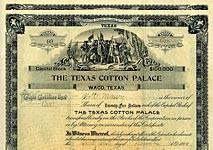 In most cases, people will roll the funds over into their own self-directed IRAs because this gives them maximum choice for investing. While 401(k), 403b, and 457 plans typically have limited investment choices; your own IRA permits you to make any investment permitted by IRS: (1)
In most cases, people will roll the funds over into their own self-directed IRAs because this gives them maximum choice for investing. While 401(k), 403b, and 457 plans typically have limited investment choices; your own IRA permits you to make any investment permitted by IRS: (1)
- Any publicly or privately traded security
- Real estate (details later)
- Notes and bonds
- Annuities
One, one-half, one-quarter, or one-tenth ounce U.S. gold coins, or one-ounce silver coins minted by the Treasury Department. It can also invest in certain platinum coins and certain gold, silver, palladium, and platinum bullion, but not these other collectibles:
- Art works
- Rugs
- Antiques
- Metals
- Gems
- Stamps
- Coins
- Alcoholic beverages
- Certain other tangible personal property.
Prohibited Transactions
Generally, a prohibited transaction is any improper use of your traditional IRA account or annuity by you, your beneficiary, or any disqualified person.
Disqualified persons include your fiduciary and members of your family (spouse, ancestor, lineal descendant, and any spouse of a lineal descendant).
The following are examples of prohibited transactions with a traditional IRA.
- Borrowing money from it.
- Selling property to it.
- Receiving unreasonable compensation for managing it.
- Using it as security for a loan.
- Buying property for personal use (present or future) with IRA funds.
Fiduciary. For these purposes, a fiduciary includes anyone who does any of the following:
- Exercises any discretionary authority or discretionary control in managing your IRA or exercises any authority or control in managing or disposing of its assets.
- Provides investment advice to your IRA for a fee, or has any authority or responsibility to do so.
- Has any discretionary authority or discretionary responsibility in administering your IRA.
Effect on an IRA account—Generally, if you or your beneficiary engages in a prohibited transaction in connection with your traditional IRA account at any time during the year, the account stops being an IRA as of the first day of that year.
Effect on you or your beneficiary—If your account stops being an IRA because you or your beneficiary engaged in a prohibited transaction, the account is treated as distributing all of its assets to you at their fair market values on the first day of the year. If the total of those values is more than your basis in the IRA, you will have a taxable gain that is includible in your income. The distribution may be subject to additional taxes or penalties.
Borrowing on an annuity contract—If you borrow money against your traditional IRA annuity contract, you must include in your gross income the fair market value of the annuity contract as of the first day of your tax year. You may have to pay the 10% additional tax on early distributions, discussed later.
Pledging an account as security—If you use a part of your traditional IRA account as security for a loan, that part is treated as a distribution and is included in your gross income. You may have to pay the 10% additional tax on early distributions, discussed later.
Trust account set up by an employer or an employee association—Your account or annuity does not lose its IRA treatment if your employer or the employee association with whom you have your traditional IRA engages in a prohibited transaction.
Owner participation—If you participate in the prohibited transaction with your employer or the association, your account is no longer treated as an IRA.
Taxes on prohibited transactions—If someone other than the owner or beneficiary of a traditional IRA engages in a prohibited transaction, that person may be liable for certain taxes. In general, there is a 15% tax on the amount of the prohibited transaction and a 100% additional tax if the transaction is not corrected.
Loss of IRA status—If the traditional IRA ceases to be an IRA because of a prohibited transaction by you or your beneficiary, you or your beneficiary are not liable for these excise taxes. However, you or your beneficiary may have to pay other taxes.
(1) IRA Publication 590, 2004



